Jivitesh Jain
ConDor: Self-Supervised Canonicalization of 3D Pose for Partial Shapes
Jan 19, 2022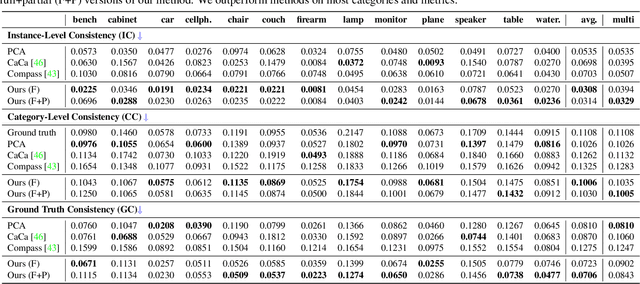
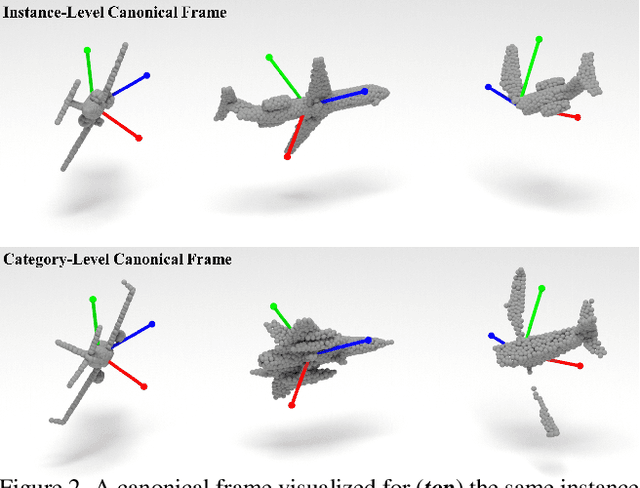


Abstract:Progress in 3D object understanding has relied on manually canonicalized shape datasets that contain instances with consistent position and orientation (3D pose). This has made it hard to generalize these methods to in-the-wild shapes, eg., from internet model collections or depth sensors. ConDor is a self-supervised method that learns to Canonicalize the 3D orientation and position for full and partial 3D point clouds. We build on top of Tensor Field Networks (TFNs), a class of permutation- and rotation-equivariant, and translation-invariant 3D networks. During inference, our method takes an unseen full or partial 3D point cloud at an arbitrary pose and outputs an equivariant canonical pose. During training, this network uses self-supervision losses to learn the canonical pose from an un-canonicalized collection of full and partial 3D point clouds. ConDor can also learn to consistently co-segment object parts without any supervision. Extensive quantitative results on four new metrics show that our approach outperforms existing methods while enabling new applications such as operation on depth images and annotation transfer.
Battling Hateful Content in Indic Languages HASOC '21
Nov 05, 2021
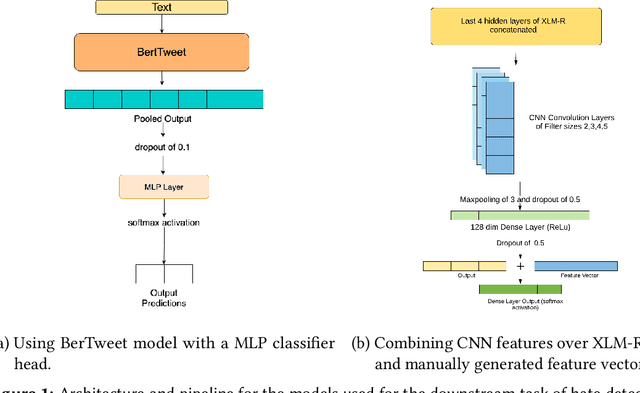
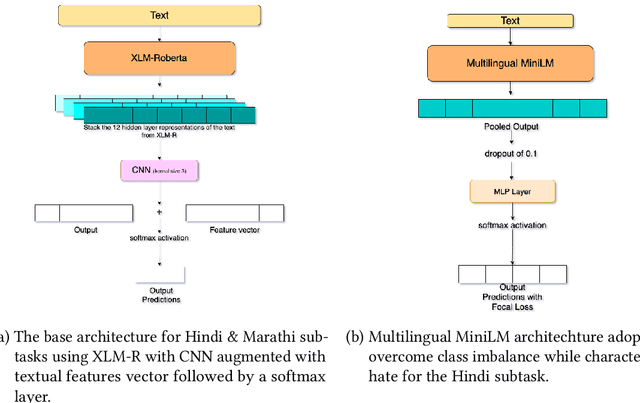
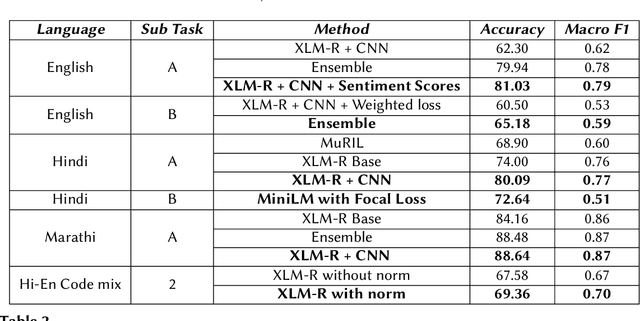
Abstract:The extensive rise in consumption of online social media (OSMs) by a large number of people poses a critical problem of curbing the spread of hateful content on these platforms. With the growing usage of OSMs in multiple languages, the task of detecting and characterizing hate becomes more complex. The subtle variations of code-mixed texts along with switching scripts only add to the complexity. This paper presents a solution for the HASOC 2021 Multilingual Twitter Hate-Speech Detection challenge by team PreCog IIIT Hyderabad. We adopt a multilingual transformer based approach and describe our architecture for all 6 subtasks as part of the challenge. Out of the 6 teams that participated in all the subtasks, our submissions rank 3rd overall.
 Add to Chrome
Add to Chrome Add to Firefox
Add to Firefox Add to Edge
Add to Edge